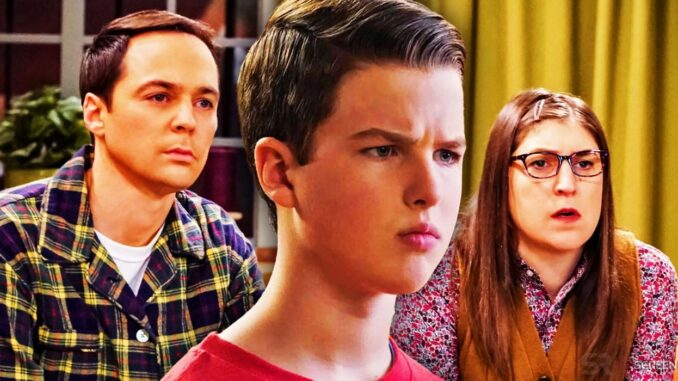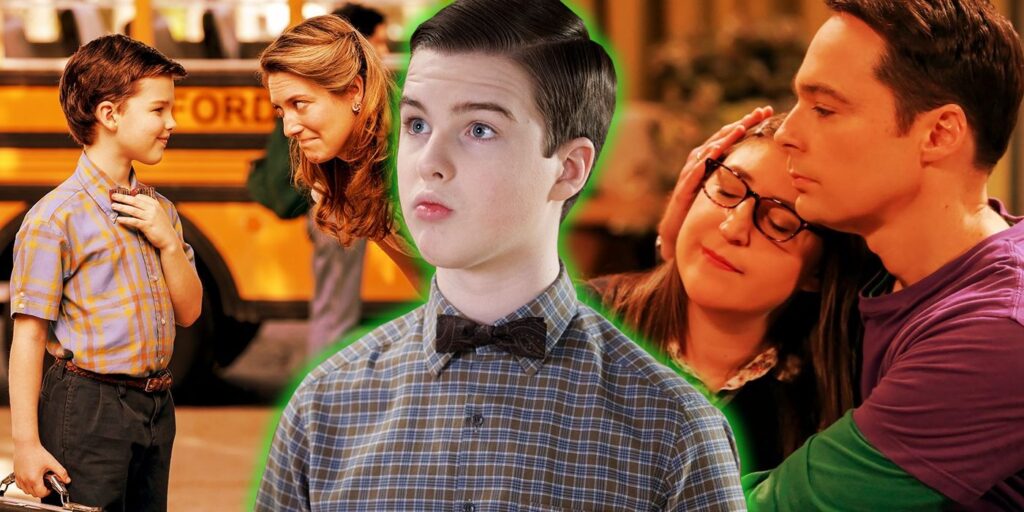
One of the most glaring inconsistencies between The Big Bang Theory and its spin-off, Young Sheldon, lies in the portrayal of Sheldon Cooper’s beloved grandmother, Meemaw. The stark contrast between the lively, beer-loving matriarch in Young Sheldon and the more traditional, protective grandmother seen in The Big Bang Theory leaves fans wondering: how did these two versions of Meemaw become so disconnected?
Two Versions of Meemaw: A Fan-Favorite, But an Enigma
Meemaw has always been a central figure in Sheldon’s life, with her personality and antics earning her a spot as a fan-favorite character. In Young Sheldon, played by Annie Potts, she’s a vivacious and rebellious woman. She thrives on socializing, enjoys a good drink, and even runs a secret gambling operation behind her laundromat.
Fast forward to The Big Bang Theory, where Meemaw finally appears in Season 9, Episode 14 (The Meemaw Materialization), played by June Squibb. Here, she is portrayed as a warm, slightly old-fashioned, protective grandmother who butts heads with Amy Farrah Fowler over Sheldon. Her transformation into this traditional, more subdued figure is striking, but Young Sheldon never addresses the evolution, leaving fans scratching their heads.
Missed Opportunities in Young Sheldon
Throughout Young Sheldon, there were countless chances to explain Meemaw’s dramatic shift in personality. Unfortunately, the show never fully connected the dots, leaving fans with an unresolved mystery.
George Sr.’s Death
One of the most plausible turning points could have been George Sr.’s death. In The Big Bang Theory, Sheldon often mentions how Meemaw stepped up as a parental figure after his father passed. This shift could have explained her eventual transition into a more grounded and protective matriarch. However, Young Sheldon chose to keep Meemaw’s character consistent, failing to show any significant evolution.

Her Relationship with Dale
Another opportunity for character growth was her long-term relationship with Dale. A breakup or emotional fallout could have sparked a change in Meemaw’s perspective, pushing her toward introspection and a more traditional demeanor. Yet, the series opted to focus on her feisty, carefree nature without delving into how her life experiences might shape her personality.
Other Missed Moments
Other storylines, like Meemaw’s arrest or her influence on her grandchildren, could have served as catalysts for change. These moments could have showcased a shift in priorities or a realization about her role in the Cooper family. Instead, Young Sheldon kept her consistent, never bridging the gap to her Big Bang Theory counterpart.
Fans Left to Speculate
For years, Meemaw existed only through Sheldon’s stories in The Big Bang Theory, making her on-screen debut a much-anticipated moment. However, the dramatic differences between her portrayals in the two series have left fans debating how these two versions can coexist in the same universe.
While Young Sheldon explores Meemaw’s energetic and bold personality, it misses the chance to show how life’s challenges—like loss, heartbreak, or growing older—might have shaped her into the more reserved figure fans meet later.
Conclusion
Meemaw’s evolution remains one of the biggest unresolved questions in The Big Bang Theory universe. While Young Sheldon offered the perfect platform to explore and explain this transition, it consistently missed the mark. As a result, fans are left with a disjointed narrative, wondering how one of Sheldon’s most beloved family members became such a major plot hole.